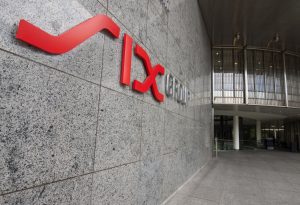SIX Swiss Exchange has become the first exchange operator to launch request for quote (RFQ) trading for exchange traded funds (ETF).
Named Quote-on-Demand Europe (QOD Europe), the newly extended service comes as part of SIX’s desire to become a one stop shop. It claims to achieve execution at the European Best Bid Offer (EBBO) for around 95% of trades.
 The service allows clients to trade both ETFs on its own venue and on other primary exchanges including the London Stock Exchange, Deutsche Boerse, Euronext, Nasdaq OMX and Wiener Boerse. Approximately 6,000 ETFs and ETPs are tradable.
The service allows clients to trade both ETFs on its own venue and on other primary exchanges including the London Stock Exchange, Deutsche Boerse, Euronext, Nasdaq OMX and Wiener Boerse. Approximately 6,000 ETFs and ETPs are tradable.
“SIX Swiss Exchange has been a trailblazer in the ETF industry for over 20 years. The launch of ETF QOD Europe reaffirms our commitment to innovation, providing a unique, cross-market trading experience for our users. We believe this groundbreaking service will set a new standard in the European ETF landscape,” said Christian Reuss, head of SIX Swiss Exchange.
“ETF QOD Europe not only expands the variety of ETF products available but also addresses the need for a greater variety of execution mechanisms to satisfy best-execution in ETF trading.”
The service leverages an open access model for post-trade, allowing clients to use straight-through processing, including central counterparty (CCP) clearing in order to minimise costs and counterparty risk.
SIX Swiss Exchange confirmed it is working with its internal CCP, SIX x-clear, as well as with Cboe Clear Europe and LCH Ltd.
“This demonstrates our desire to improve Europe’s ETF market structure and deliver innovative services that allow participants to manage their risks of trading this asset class,” said Vikesh Patel, president, Cboe Clear Europe.
“It also signals our steadfast commitment to open access and clearing interoperability, which brings proven benefits in terms of innovation, post-trade efficiencies and greater participation through reduced costs.”